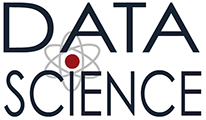Structure of the Master
The Master in Data Sciences is entirely in English, lasts two years, and requires the acquisition of 120 CFU's to be completed. It aims at forming highly skilled professionals with a deep understanding of the statistical and methodological background of both data science and machine learning and with the capability to exploit the most advanced ICT infrastructures to achieve her/his goals.
After completing the master, you will be able to:
- interact with experts from a given domain in order to be able to understand the problems and to propose optimal solutions;
- understand the structure and the quality of data at hand, pursuing a data-excellence approach;
- identify sources of noise, bias and uncertainty;
- make effective use of computer devices and infrastructures to store, handle and transform data, thus achieving the awareness needed to choose the most suitable solutions for a given task;
- pinpoint key targets best suited to be backed up by data analysis;
- analyze data with methods from advanced statistics and machine learning;
- communicate effectively the outcomes of his work and to identify strategic paths stemming from the data analysis also by exploiting advanced visualization techniques.
The First Year aims to provide a robust background in mathematics, statistics, informatics, and programming and a first approach to the foundations of Machine Learning. The courses of the first year are in common to all curricula.
The Second Year is instead structured in 4 curricula (methodology, hard science, ICT, and economy/management) each one focused on allowing the student to acquire an in-depth understanding of the problems connected with a given domain (specific data structures, methods and tools). Some of the curricula are split into learning paths to allow a further specialization of the wannabe data scientist.
This specialization is completed during the internship period and the preparation of the final exams/Intership.
A rich and global understanding of the rich data science ecosystem is provided also through specific cycles of lectures and short courses (other activities).
The Master focuses on the following skills and competencies:
Autonomy
A successful data scientist can lead a work team taking the responsibility of key technical choices; she/he is expected to appraise results, as well as visualize and communicate them effectively. The learning process will contribute to the development of these skills by exposing each student to teamwork, participation in projects and challenges; and discussions with the lecturers and tutors. The acquisition of such skills will be checked through the performances in stages/internships and or during the preparations of the dissertation for the final exam. This dissertation is the result of original work done either in the academy or at private companies or public bodies (internship).
Communication
Even though the student will specialize in the domain defined by the chosen curriculum, the data science career is interdisciplinary by nature, so every student will also learn how to interact with practitioners and scientists from different fields and contexts. She/he will be able to effectively understand a specific problem and to present the results effectively. Also, very good communication and a strong attitude toward collaboration, along with the capability of exerting leadership, will be developed in a multi-disciplinary setting by means of lectures for peers attended by professors, seminars, and simulation of interviews with experts.
Learning
The main target of the learning process is to develop the ability to cope with new problems: this means that students will be trained in a "problem-oriented" mindset. She/he will be keen to update and enhance knowledge by keeping the pace of scientific and technological innovations, moving from a sound grounding in basic as well as domain expertise. The development of the final dissertation will test all the acquired skills and will make each new data scientist able to operatively apply them on the job.
Teamwork
By being engaged in a rich variety of projects drawn from the real world, the students will learn how to cooperate in a proactive way within teams. This attitude will be further developed during the stage/internship.







